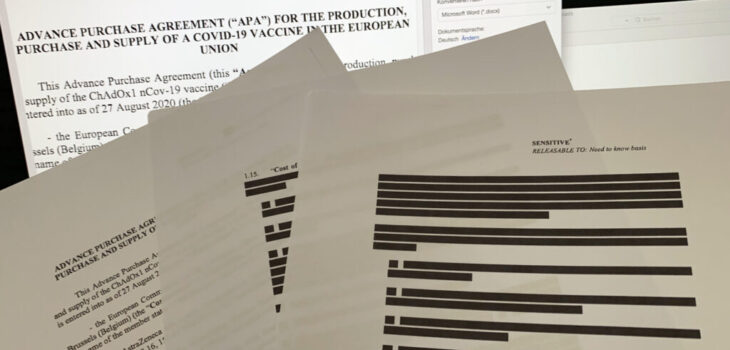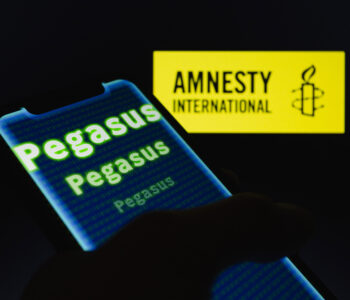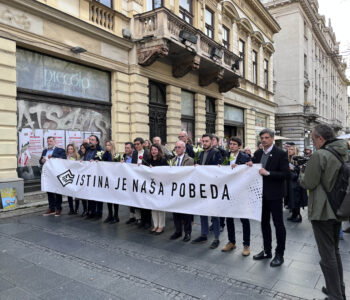
Access to Information Day: Blocking of freedom of information requests must be reported
28 September is International Day for Universal Access to Information (IDUAI), as announced at the UN in 2015. The right to access information is the foundation of all democratic processes and societies. Any obstacle in this field directly impacts the work of journalists and society’s right to be informed. Documentation of violations targeting this right from a media freedom perspective draws attention to this notion and contributes to transparency and journalistic freedom.
Freedom of information is protected in over 140 countries and territories globally, according to UNESCO. Additionally, in Europe there are additional agreements guarding access to information through dozens of national legislations available across the continent and various treaties and agreements including the Article 10 of the European Convention on Human Rights as well as Article 15 of the Treaty on the Functioning of the European Union. This right has also been observed as part of an international day every year since 2015, on 28 September as the International Day for Universal Access to Information (IDUAI). While it is a protected right, for citizens to access and receive accurate, reliable and relevant information in a timely manner, governments and public authorities have hindered these processes under various circumstances.
Access to information stands at the basis of qualitative and investigative journalism. In the area of journalism, access to information is blocked and restricted in various ways by blocking journalistic activity. One form is government or public authorities delaying answers to or not responding to “Freedom of Information” (FOI) requests protected by law, or responding with irrelevant information to them. Media Freedom Rapid Response (MFRR) monitoring database Mapping Media Freedom (MapMF) recorded 13 violations related to FOI since January 2023, with a suspected substantial number of unreported cases.
HINDRANCES TO ACCESS TO INFORMATION
However, blocked access to information is not limited to FOI cases alone. MapMF recorded 76 cases since January 2023, where access to information was blocked, and journalists’ information requests or questions during press conferences were denied or remained unanswered. Journalistic access to information is also restricted when media workers are arbitrarily denied accreditation, being hindered accessing reporting locations, or being obstructed from reporting. MapMF recorded 190 of such cases since Jan 2023. Public access to information is additionally confined when the distribution of journalistic content is blocked, including blocked journalistic websites or social media accounts. MapMF recorded 50 cases of this kind, since January 2023.
One example of unanswered information requests is from Hungary. When an investigative outlet in Hungary, Átlátszó started working on a news piece concerning the overpriced contracts by the “Student Loan Center”, they received no response for a long time. Unlike the case for many other similar examples, the publication took the necessary legal steps against this silence, and initiated a court case against the state company, for violating the right to access information.
On numerous occasions this has been the case in various countries, and globally it is not uncommon to see public institutions attempting to not disclose information that would serve public interest for various reasons.
REPORTING ON VIOLATIONS IS SIGNIFICANT
Even though the conditions in Hungary do not favour independent media or journalists, Átlátszó ran its investigation and followed up with the legal rights they have, to pursue the information which is considered to be of public interest. This case at the Metropolitan Court of Budapest was celebrated in terms of implementation of freedom of information; however not every case receives the same encouraging result.
From journalists’ perspective, difficulties in accessing information are sometimes considered to be “standard” or it would be referred to as “it comes with the job”, despite over 100 countries around the world having a legislation recognising freedom of information.
Over the years, in the field of media freedom, in areas where press and media freedom violations were reported and engagement in advocacy efforts followed these reports, progress has been made to tackle problems and expand the scope of media freedom to protect journalists, media workers, outlets and the people’s right to access accurate, reliable and verified information. It is imperative that journalists speak up about violations in the field of freedom of information and report them too, in order for such graceless attempts at blocking flow of information to come to an end.
CAMPAIGN ON FREEDOM OF INFORMATION
As many journalists remain silent about the unanswered questions or irrelevant information being supplied to them upon filing a freedom of information request, these cases remain unreported and as a result, fail to lead to advocacy efforts around the topic, which becomes the basis of overcoming such hindrances. In order to boost the implementation of the right to access information and news, the MFRR has been documenting press and media violations, and is currently leading a campaign on Freedom of Information. As part of this campaign, in 2025 MFRR will also be publishing a report based on the violations in this field.
The MFRR hereby takes this opportunity to observe the International Day for Universal Access to Information, and call on all journalists, media workers, outlets and local partners in the European Union member states and candidate countries to report cases of violations in the field of freedom of information, alongside all other press and media freedom violations. The cases will be documented on MFRR’s monitoring database Mapping Media Freedom, and in 2025 a report on Freedom of Information will be published.
By Gürkan Özturan, Monitoring Officer, European Centre for Press and Media Freedom
@obefintlig










